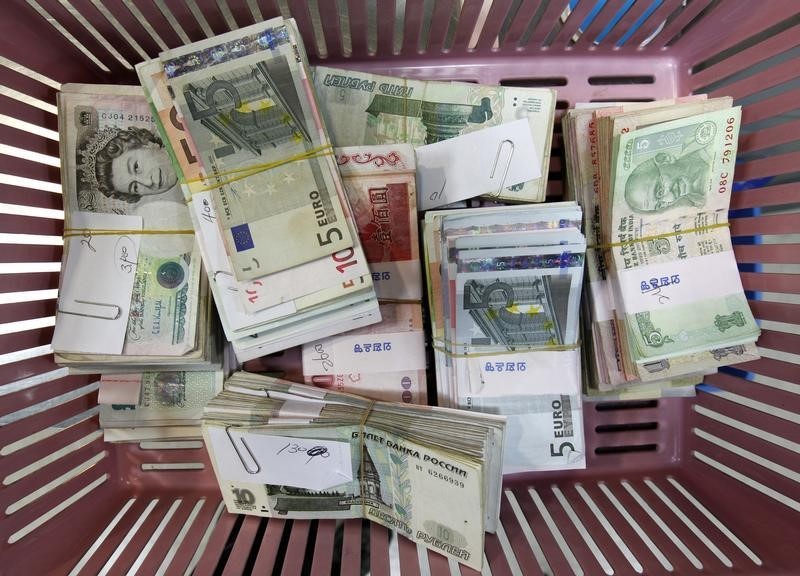Interactive Brokers shares jump as it secures spot in S&P 500
(Recasts; adds currency reactions; updates prices)
By Kate Duguid
NEW YORK, June 7 (Reuters) - The U.S. dollar index .DXY
fell on Friday to its lowest since March 26 after the U.S.
Department of Labor's employment report showed that job growth
slowed sharply in May and wages rose less than expected.
The weak data suggest that the loss of momentum in economic
activity has spread to the labor market, which will further
support forecasts that the Federal Reserve will cut interest
rates this year. Rising expectations of a cut have pulled the
dollar 1.2% lower this week.
"It's a soft report. It's a soft enough report that a June
rate cut should probably be on the table for discussion," said
Greg Anderson, global head of foreign exchange strategy at BMO
Capital Markets in New York.
Nonfarm payrolls increased by 75,000 jobs last month,
falling below the roughly 100,000 needed per month to keep up
with growth in the working-age population. Tepid employment added to lackluster data on consumer
spending, business investment, manufacturing and homes sales
suggesting the economy was losing momentum in the second
quarter. Growth has cooled as the stimulus from last year's tax
cuts and spending increases fades.
"Unlike a lot of the reports we've seen where the headline
is strong and the details are soft, or vice versa, this is just
soft. Headline is soft, details are soft," said Anderson, noting
that the average duration of a spell of unemployment rose
substantially and the employed share of the population fell.
Expectations for a rate cut in June rose to 22.5% on Friday
from 16.7% the day prior, and for July chances rose to 69.1%
from 58.0%, according to CME Group's FedWatch tool.
The market is now pricing in two to three rate cuts in 2019,
with only a 1.3% chance that rates will be at their current
levels in December.
Against the Japanese yen JPY= , the dollar weakened by
0.23%, last at 108.16. Retreating from a two-month low, the
greenback was last down 0.52% against the euro EUR= to 1.133.
Among the biggest movers was the Canadian dollar CAD= which
strengthened 0.67% to 1.327.
The broad cool-off in hiring happened before a recent
escalation in trade tensions between the United States and two
of its major trading partners, China and Mexico, which could hit
hiring further. Fed Chairman Jerome Powell said on Tuesday the
central bank was closely monitoring the implications of the
trade tensions on the economy and would "act as appropriate to
sustain the expansion."
Sterling GBP= rose to a two-week high on Friday, helped
mostly by the ailing dollar. The pound was set for its first
weekly gain in a month.
